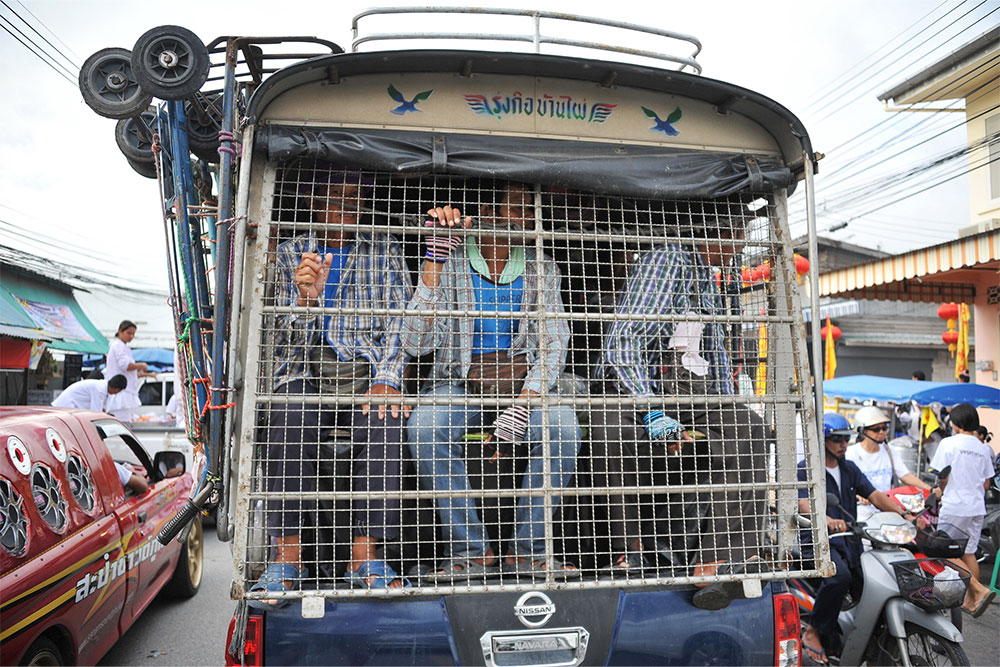
If you’re an employer, fire safety is your responsibility.
But expecting one person to fulfil every fire safety obligation would be unrealistic and unsafe. That’s why legislation allows competent individuals to take on the role of either a fire warden or marshal and assist the employer in their fire safety responsibilities.
What is the key difference between fire marshal and fire warden? That depends on your organisation and its fire safety policies.
Read our guide to learn how fire marshals compare with fire wardens, what they do and which role your company needs to appoint.
What Does a Fire Marshal Do?
Every organisation will have a responsible person accountable for fire safety. For workplaces, the employer is usually the responsible person.
The responsible person can nominate someone within their organisation as a fire marshal to support them in their fire safety duties.
We’ve written about the role of a fire marshal in more detail before, but there are six primary duties they fulfil. These duties are:
- Conduct fire risk assessments
- Identify and report any fire hazards
- Take on additional responsibilities in the event of a fire emergency
- Give first aid to anyone injured in the event of a fire emergency
- Fight fires when safe to do so
- Support safe evacuations when a fire alarm is activated
A fire marshal will also have other regular fire safety duties, often to support their six overarching responsibilities. For example, to ensure safe evacuations, a fire marshal might regularly check escape routes are clear or organise routine fire drills.
What Does a Fire Warden Do?
Responsible persons can nominate someone within their organisation as a fire warden.
Fire wardens also support fire safety in their organisation and help the responsible person fulfil their legal obligations.
We’ve explored the role of a fire warden in more detail before, but their primary duties are:
- Conduct fire risk assessments
- Identify and report any fire hazards
- Take on additional responsibilities in the event of a fire emergency
- Give first aid to anyone injured in the event of a fire emergency
- Fight fires when safe to do so
- Support safe evacuations when a fire alarm is activated

(No. This isn’t a mistake. The six primary duties of a fire warden are the same as a fire marshal.)
And, as with fire marshals, wardens will perform similar routine fire safety duties to support their primary responsibilities.
What is the Key Difference?
In practice, fire marshals and fire wardens are interchangeable. The Fire Safety Order 2005, the legislation for workplace fire safety, doesn’t differentiate the role. It also doesn’t stipulate either position be appointed.
As long as the responsible person has nominated enough competent individuals to fulfil all fire safety requirements, the title of those competent people doesn’t really matter. Fire marshals and fire wardens are the most common terms for those supporting workplace fire safety.
The key difference between Fire Marshals and Fire Wardens is an employer’s naming preference.
But with that being said, some people do see a difference between the two roles. While not a legal distinction, some people assume fire marshals take on a more preventative role in fire safety and will supervise evacuations. Fire wardens are sometimes considered somewhat junior to the marshal, taking on duties such as regularly testing fire alarms to support the marshal’s more critical responsibilities.
Do You Need to Appoint Both Roles?
No. Assigning both roles is not a requirement under fire safety legislation.
But you can choose to appoint both fire marshals and fire wardens within one workplace if you think it’s necessary.
Are There Any Advantages to Appointing Both Roles?
Arguably, yes. Some larger organisations benefit from splitting fire safety duties between fire wardens and fire marshals.
When your number of employees is in the hundreds or your workplace covers thousands of square feet, fire safety duties are more extensive and complex. In this situation, it helps to share responsibilities between different roles.
For example, an employer running a larger company might appoint highly trained fire marshals to conduct risk assessments and plan for evacuations due to the complexity of the task. The same employer might delegate more routine tasks, such as checking firefighting equipment or testing alarms, to fire wardens.
How Many Competent Persons Need to be Appointed?
At a minimum, two competent persons should be nominated within any organisation. Having two individuals supporting fire safety means you should be covered if one employee is absent.
But the number of competent persons your organisation needs depends on the nature and size of your organisation. As mentioned, the larger your organisation, the more extensive your fire safety needs are. Higher-risk workplaces also have increased or more complex fire safety obligations.
General guidelines recommend:
- Low-risk workplaces should have at least one competent person for every 50 employees
- Medium-risk workplaces should have at least one competent person for every 20 employees
- High-risk workplaces should have at least one competent person for every 15 employees
Most office environments would count as low-risk workplaces. The risk level climbs if:
- Premises are large and/or complex, making evacuation difficult
- High levels of flammable materials, such as fuel, paper or wood, are stored on-site
- Operations involve naked flames or other sources of ignition
- Evacuations might be delayed due to the nature of the work; for example, machinery must be switched off before employees can leave the premises
You can learn more in our previous blog about the number of competent persons you must appoint.
What Training Do Fire Marshals and Wardens Need?
Any individual tasked with fire safety needs to have the knowledge, skills and training to do what’s asked of them – unlike titles, this is a legal and moral obligation.
And it’s important to remember that employers are ultimately responsible for fire safety in the workplace. So any employer who delegates duties to an unfit individual will face repercussions should the worst happen.
When appointing a fire marshal (or warden), you need to be sure they’re competent and up to the task, which means they need specific fire safety training.
Our online Fire Warden Training prepares any employee to take on the role of a fire warden. Trainees learn to conduct fire risk assessments, one of the most critical fire safety duties and evacuation and fire fighting duties. You can be confident any candidate will have the knowledge and skills to support fire safety in your workplace and ensure obligations are met. And since the training is entirely online, any employee can fit learning around their day-to-day activities.




























































































































































































































































































































































































































































































































































































































































































































































